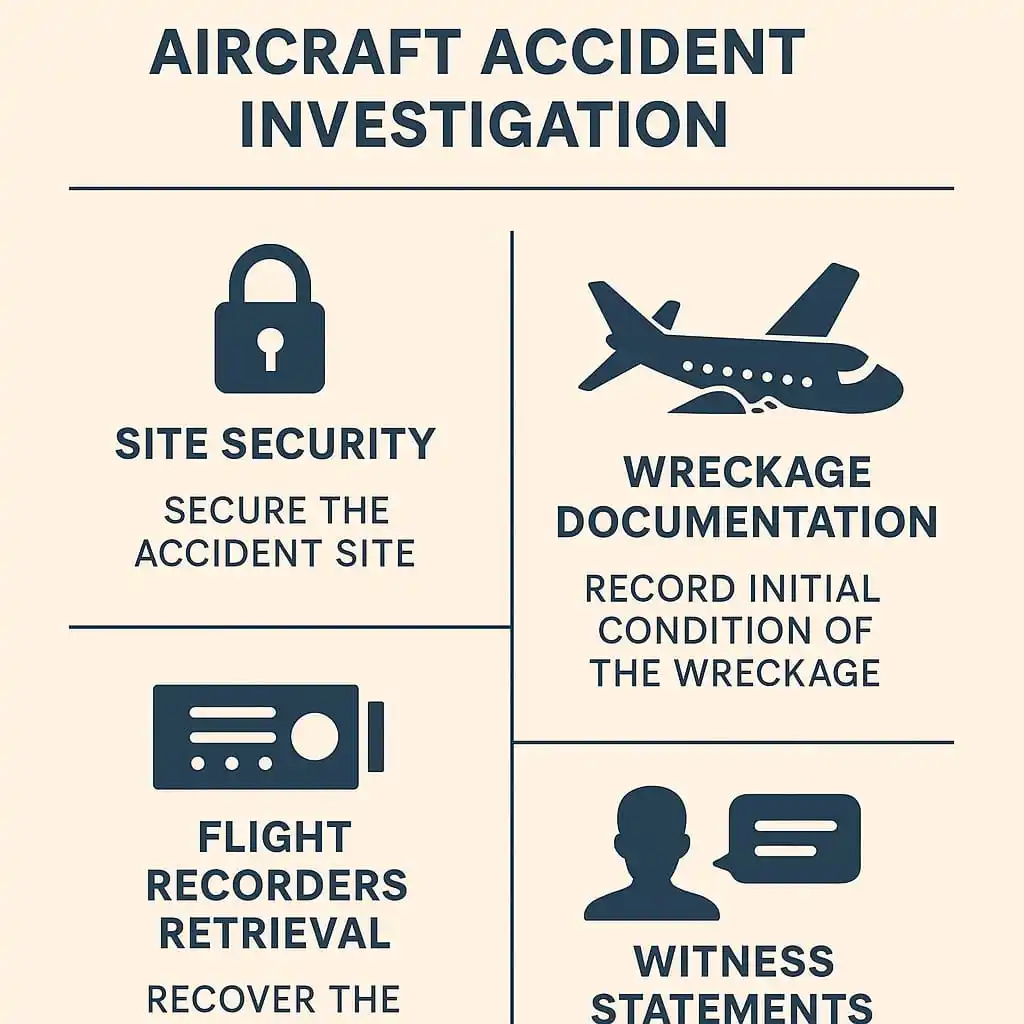
Aviator Fady
June 17, 2025 at 05:37 PM
✈️ In an aircraft accident investigation, certain tasks are time-critical due to the risk of losing perishable evidence, environmental degradation, or unauthorized tampering. Acting quickly helps preserve vital data and supports an accurate analysis of the causes.
✅ Time-Critical Tasks & What Must Be Recorded Quickly:
1️⃣. Site Security & Evidence Preservation
▪️Secure the accident site immediately to prevent disturbance or contamination.
▪️Set up perimeter control to restrict access to authorized personnel only.
▪️Photograph and document the initial condition of the wreckage and surroundings before moving anything.
2️⃣. Wreckage Documentation
▪️Record the exact location and distribution of aircraft debris (impact marks, wreckage spread, fire damage).
▪️Use photos, videos, GPS coordinates, and sketches.
⚠️Pay special attention to:
▪️Flight control surfaces
▪️Engine positions
▪️Landing gear status
▪️Instrument readings (frozen gauges)
3️⃣. Flight Recorders Retrieval
▪️Locate and recover:
▪️Flight Data Recorder (FDR)
▪️Cockpit Voice Recorder (CVR)
▪️Secure and send them to a specialized lab for prompt data extraction.
4️⃣. Witness Statements
Collect statements from:
▪️Survivors
▪️Eyewitnesses
▪️First responders
▪️ATC personnel
▪️Do this as soon as possible, while memories are still fresh.
5️⃣. Perishable Data Collection
▪️Radar data, ATC recordings, weather data, and surveillance videos must be secured quickly before automatic overwriting.
▪️Collect aircraft maintenance records, crew duty logs, and air traffic clearance tapes.
6️⃣. Environmental Evidence
▪️Record weather conditions, light levels, and visibility at the time of the accident.
▪️Take air and soil samples if fire, fuel leaks, or hazardous cargo is involved.
7️⃣. Biological and Forensic Evidence
▪️Time-sensitive for:
▪️Toxicology tests on crew members
▪️Survivability analysis
▪️Injury pattern mapping
